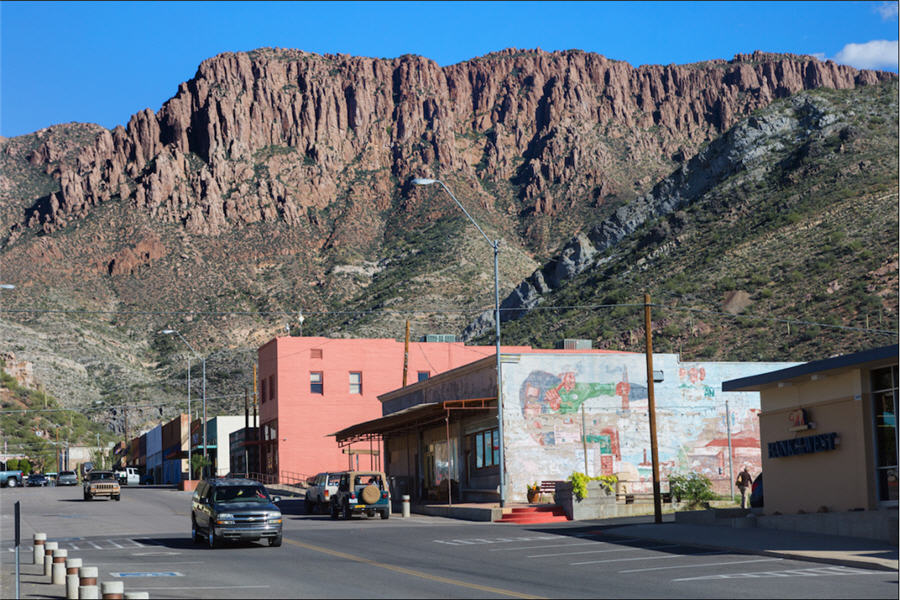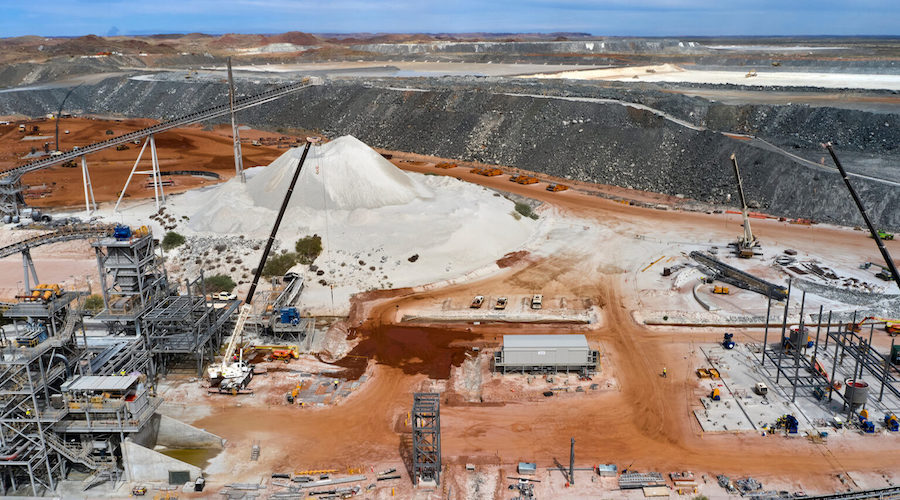Rio CEO seeks ‘win-win’ for Resolution copper project

A key Native American leader in Arizona declined to meet Rio Tinto Plc’s chief executive this week, the latest roadblock in the mining giant’s search for a “win-win” compromise to build its controversial Resolution Copper project.
The visit from Rio’s Jakob Stausholm to the state underscores Resolution’s importance to the Anglo-Australian company, which has spent more than $2 billion on the project in the past decade but has yet to produce any copper, the red metal used in electric vehicles and other electronics.
Rio hopes the mine will eventually produce more than 40 billion pounds of copper. First, it must win approval from the San Carlos Apache tribe, an unlikely prospect as Chairman Terry Rambler and other tribal leaders have long signaled that their opposition centers on religious concerns and cannot be assuaged by economic incentives.
Stausholm, in his first visit to Arizona since becoming CEO in January, said he is hopeful the two sides can reach an agreement that will allow the project to go ahead.
A bill under consideration in the US Congress would undo 2014 legislation that approved a land transfer to give Rio access to the copper deposit
“We’re trying to find a win-win. I do think that’s in everyone’s interest. But I reckon that we still have work to do,” Stausholm told Reuters in a video interview on Wednesday from Phoenix, the state’s capital.
“If we haven’t explained ourselves well enough, then we need to explain ourselves better.”
The complex debate is a harbinger of land battles to come as the United States aims to build more EVs, which use twice as much copper as vehicles with internal combustion engines. The Resolution mine could meet about 25% of projected U.S. demand for the metal.
The Arizona dispute centers on Oak Flat Campground, which the San Carlos Apache consider home to deities. The underground mine would cause a crater that would swallow the site.
U.S. President Joe Biden – who received a critical endorsement from the San Carlos Apache during his presidential bid – put the project temporarily on hold in March.
A bill under consideration in the U.S. Congress would undo 2014 legislation that approved a land transfer to give Rio access to the copper deposit.
Stausholm said he tried unsuccessfully to meet with Rambler during his Arizona visit. Rambler told Reuters he would rather spend his time lobbying Congress to block the land transfer.
“If they wanted to meet they should have met way before anything was done” in 2014, Rambler said. “My focus now is on changing that law.”
When to talk?
The two sides disagree about how and when to negotiate. Whereas Rambler and other Native American leaders said the proper time for consultation was in 2014, Stausholm said he sees that process just beginning.
“You can only get communities comfortable if they really understand, if they feel we’re transparent,” said Stausholm, an accountant by training from Denmark who previously worked for shipping giant Maersk and Royal Dutch Shell .
Stausholm declined to say whether Rio could eventually walk away from the project, though he acknowledged the company wants tribal consent.
“The first stage is dialogue, and that’s why I’m putting myself here in Arizona,” he said. “You can’t conclude anything at this point in time.”
Stausholm hinted that changes were possible to the mine’s design plan that might make it palatable to Native Americans, though he declined to be specific. “We have to get through the dialogue and find out what the pressure points are,” he said.
Stausholm added that Rio would smelt any copper produced at the mine inside the United States. Opponents have said they fear Rio would export the copper for use by China or another nation.
BHP, which is a minority partner in the project, was not immediately available to comment.
(By Ernest Scheyder, Clara Denina and Melanie Burton; Editing by Cynthia Osterman)
{{ commodity.name }}
{{ post.title }}
{{ post.date }}




Comments